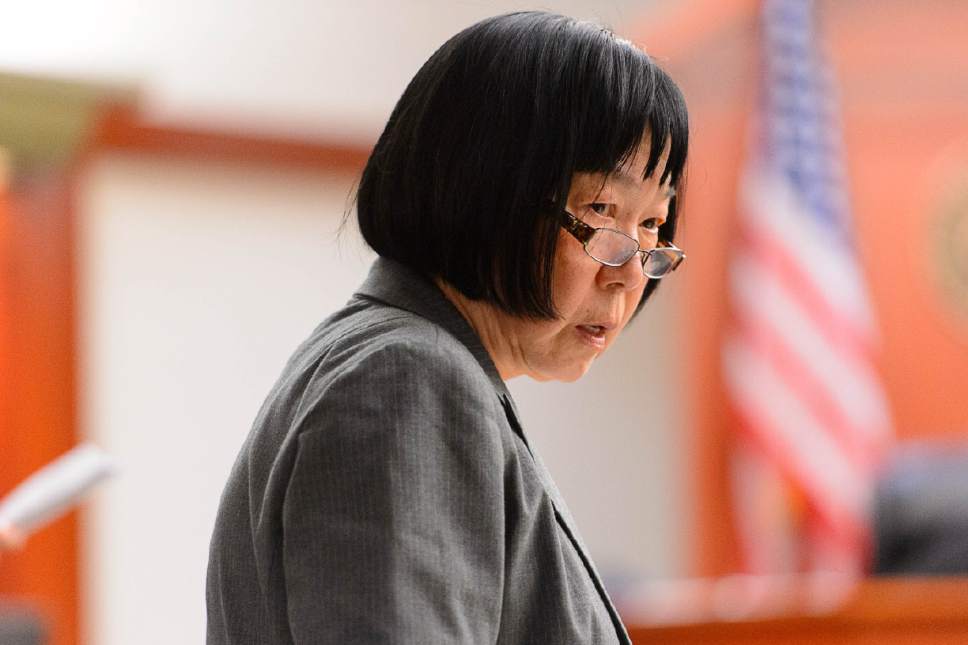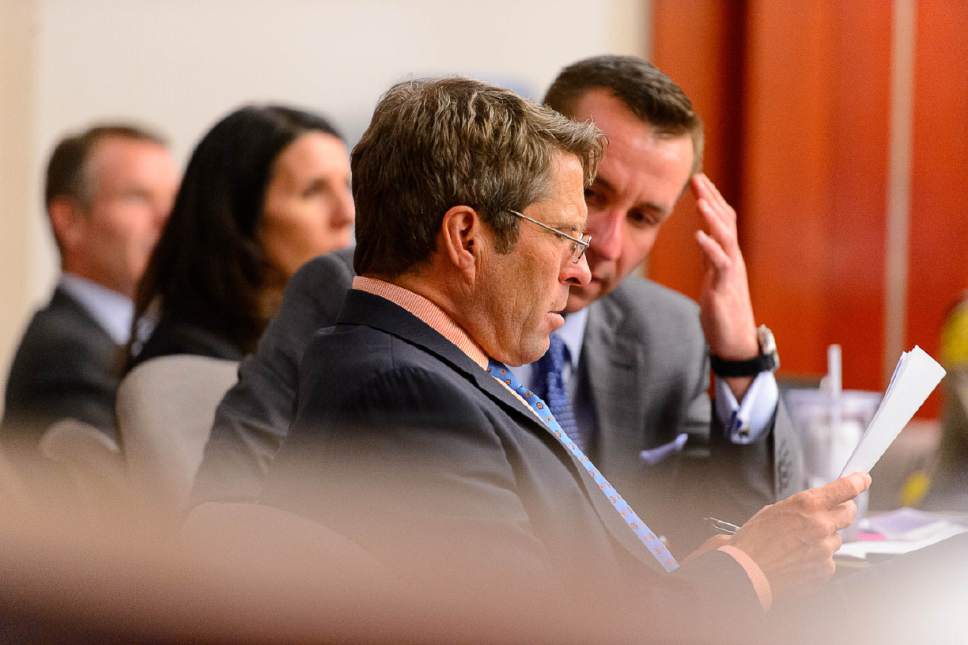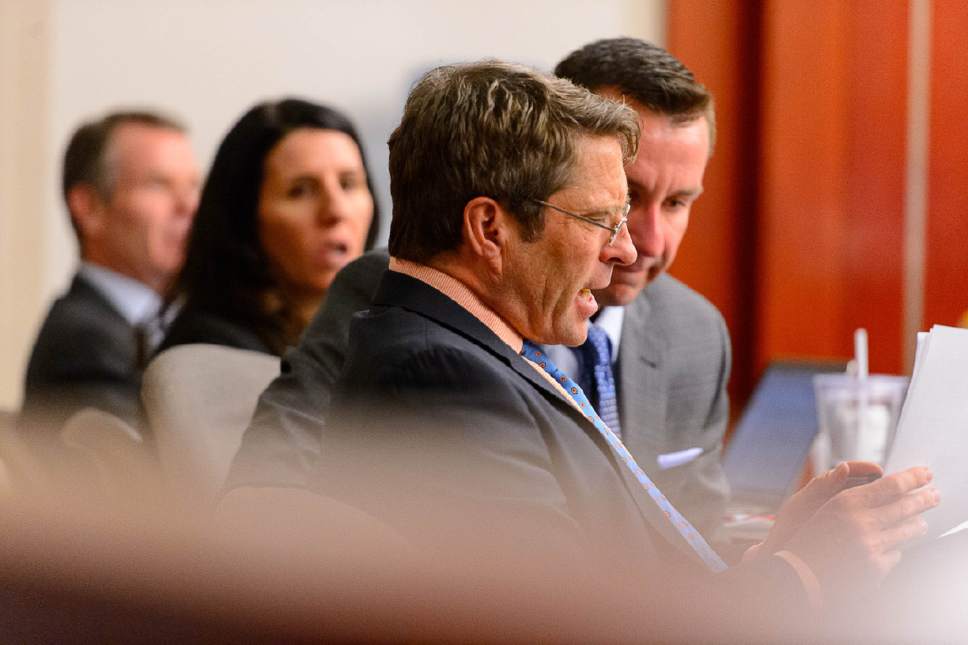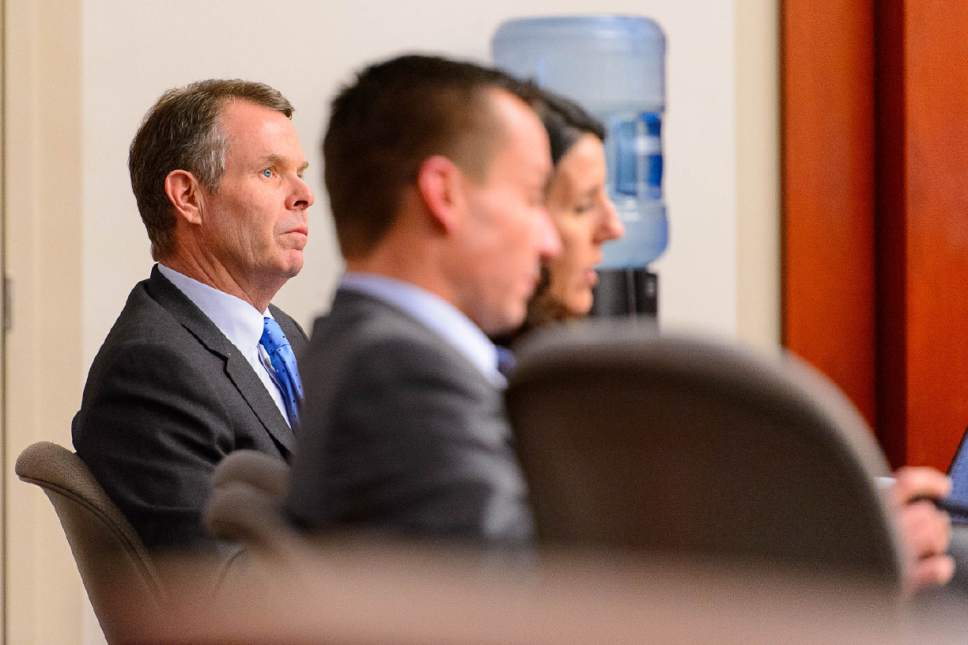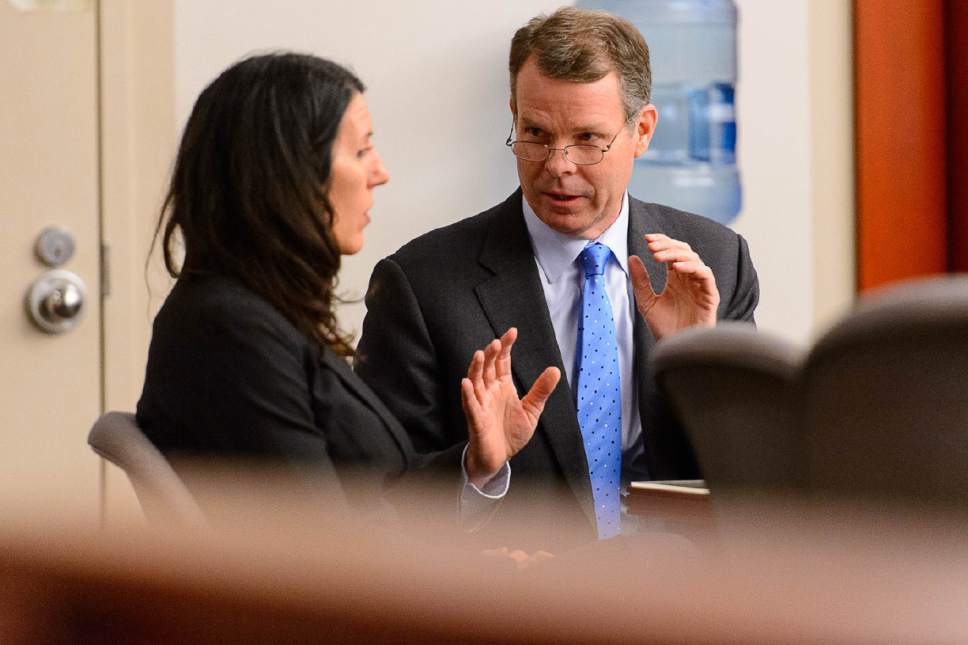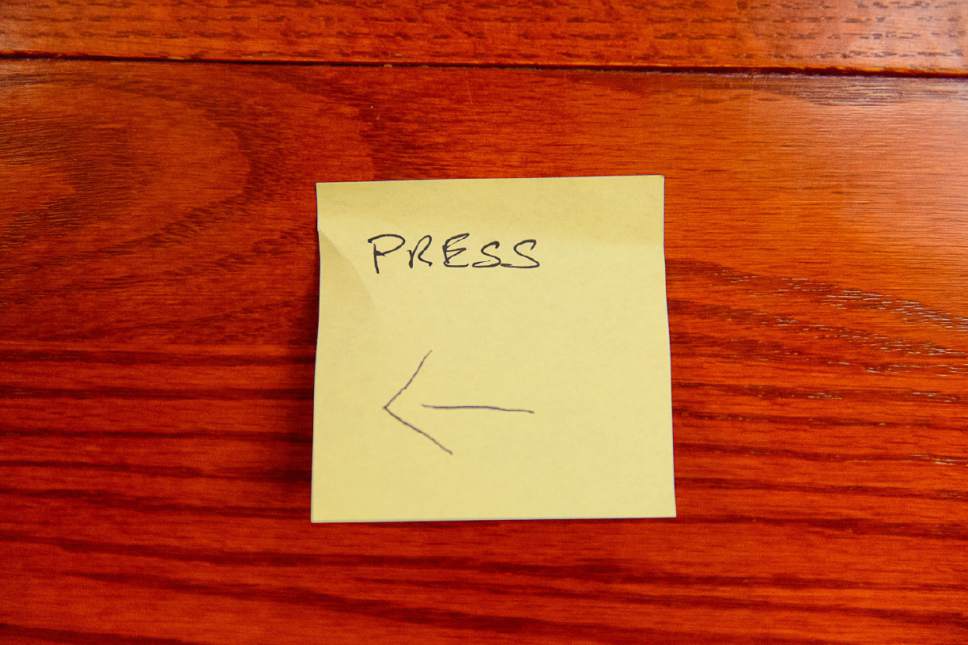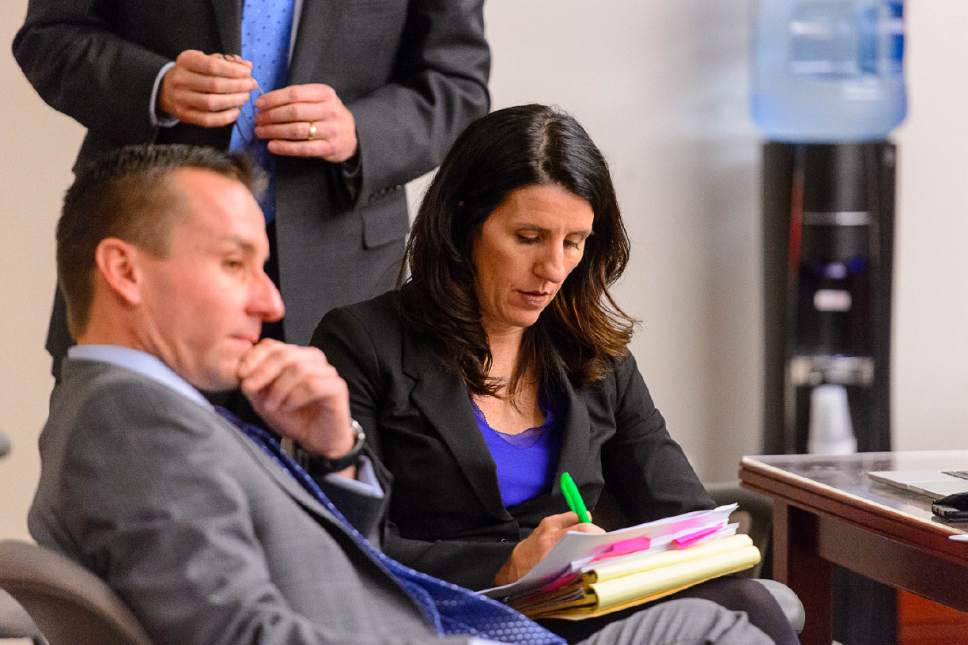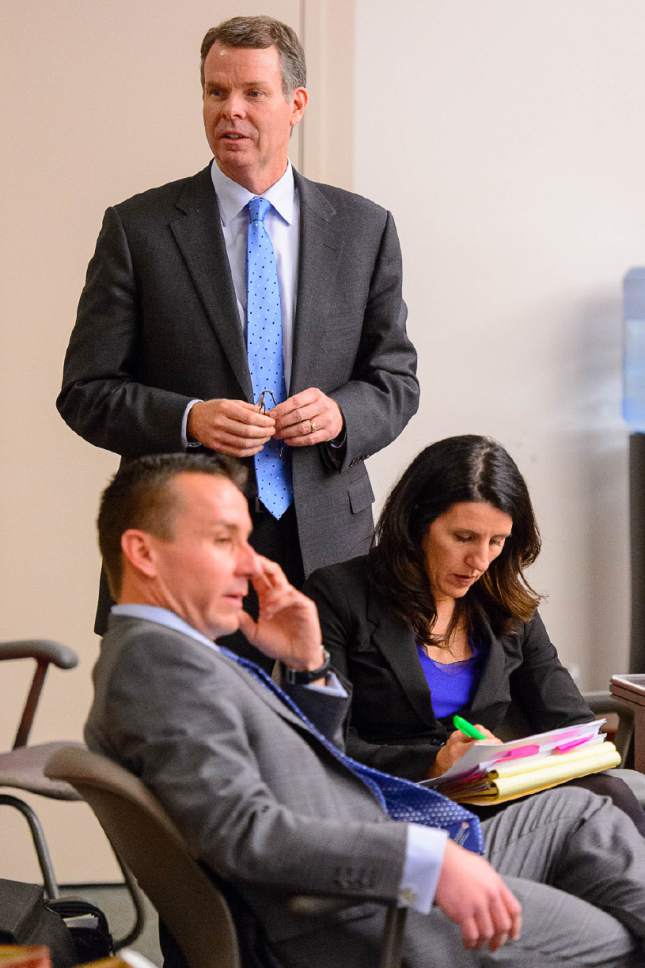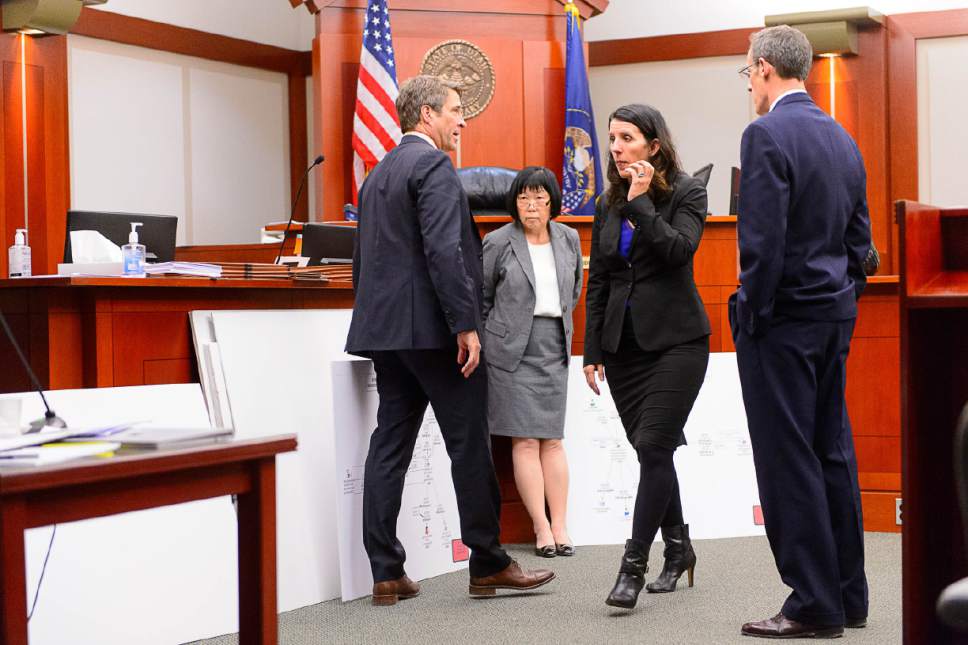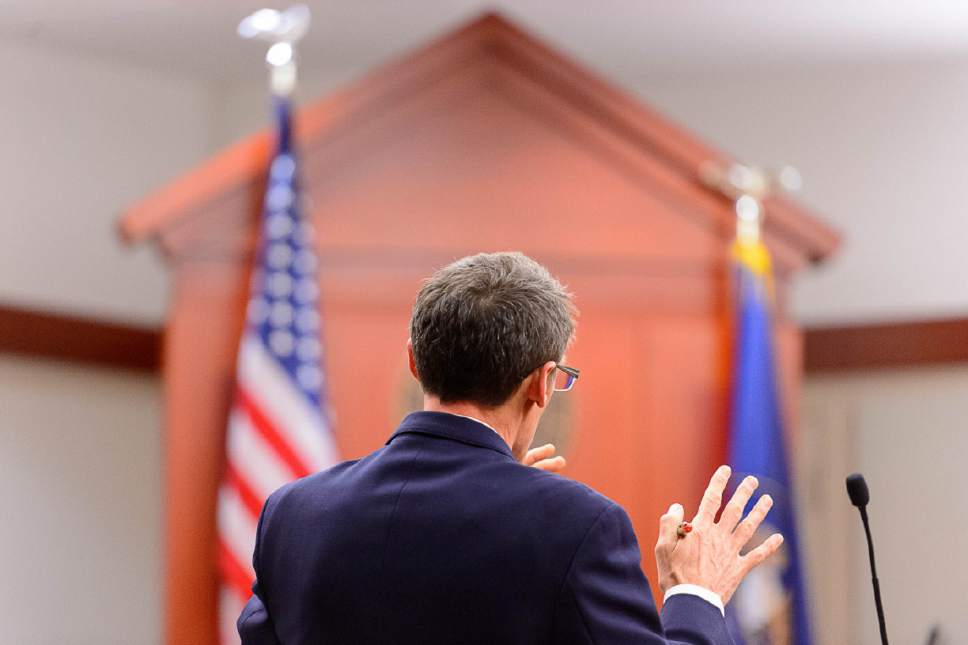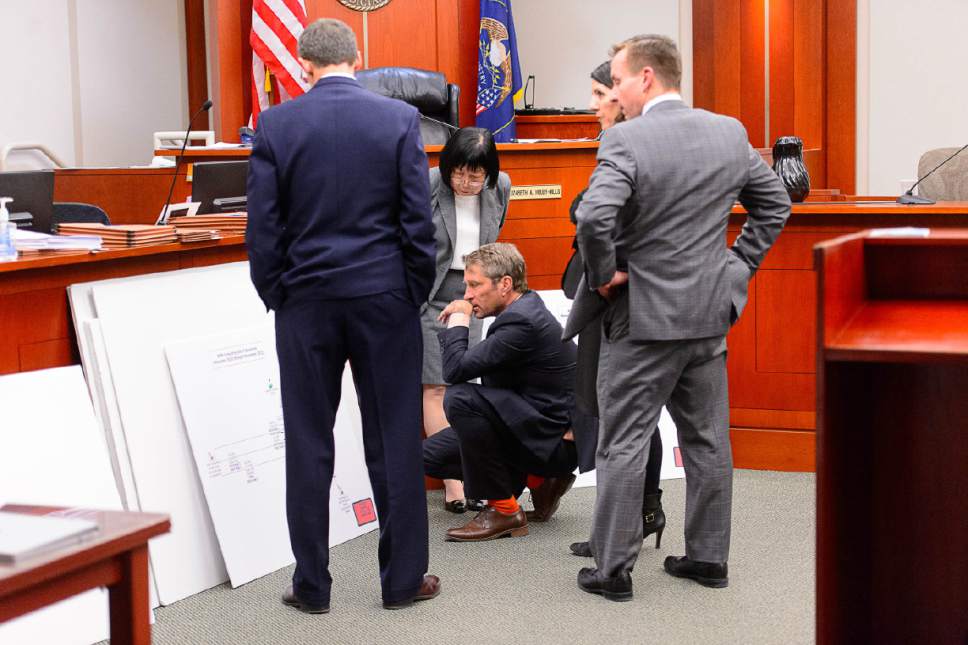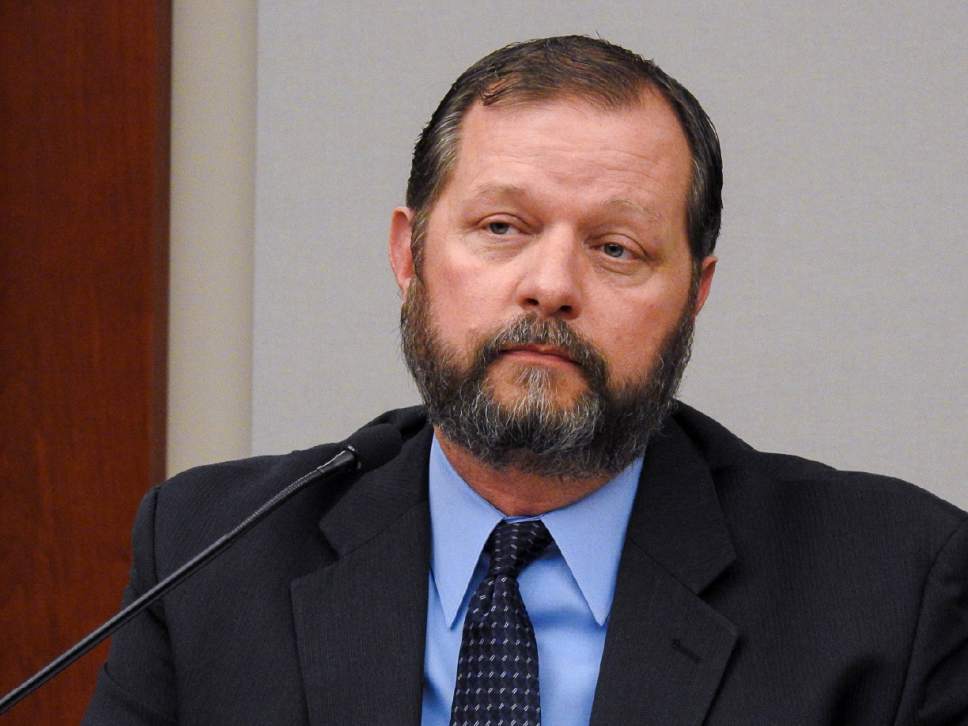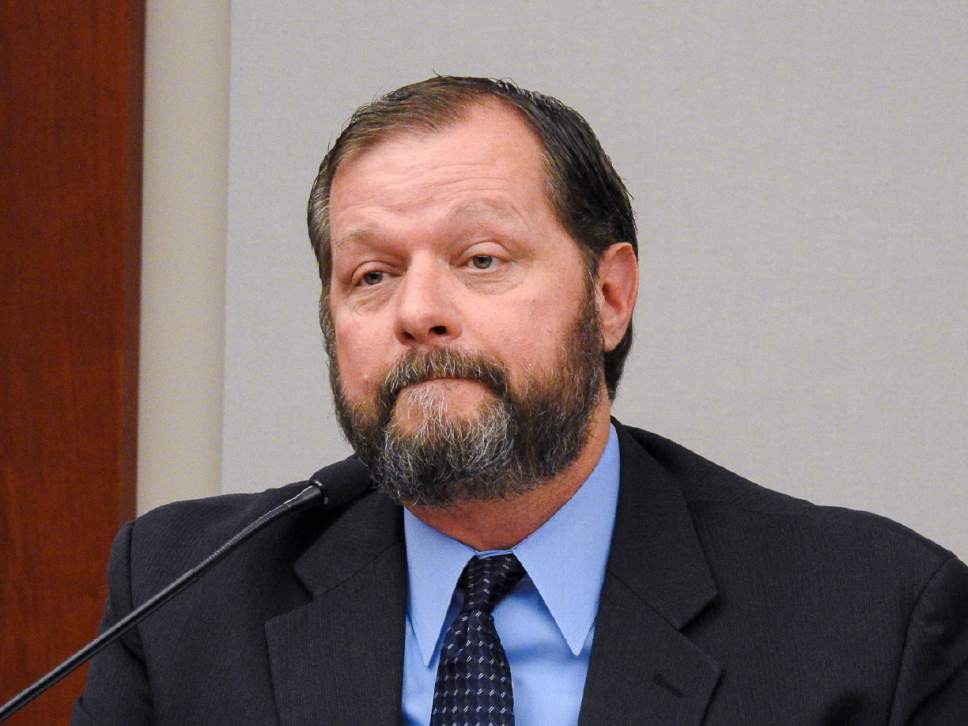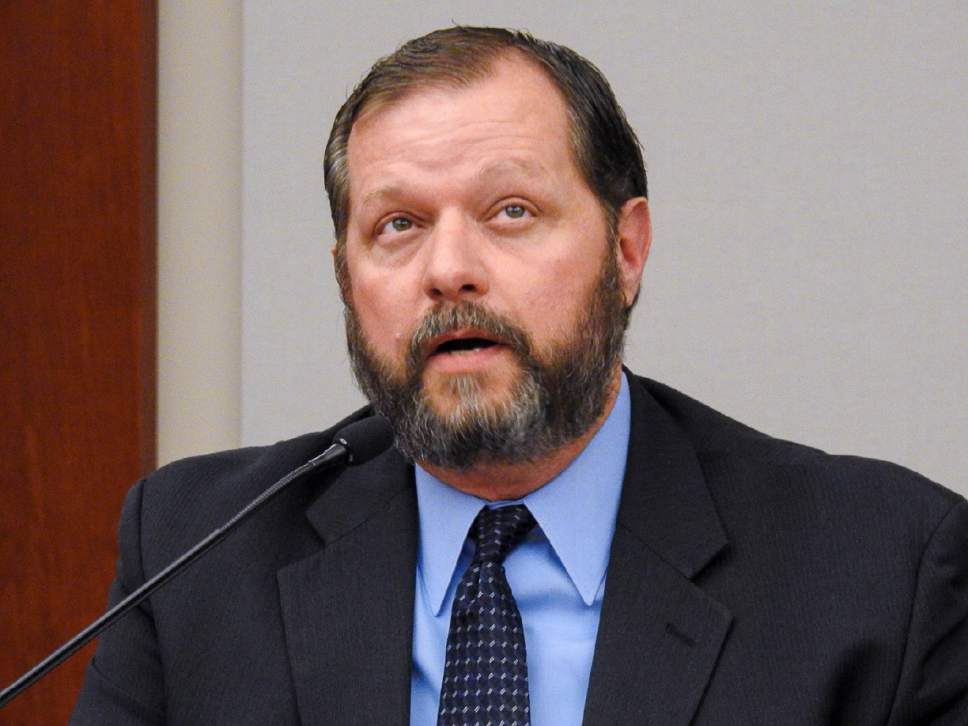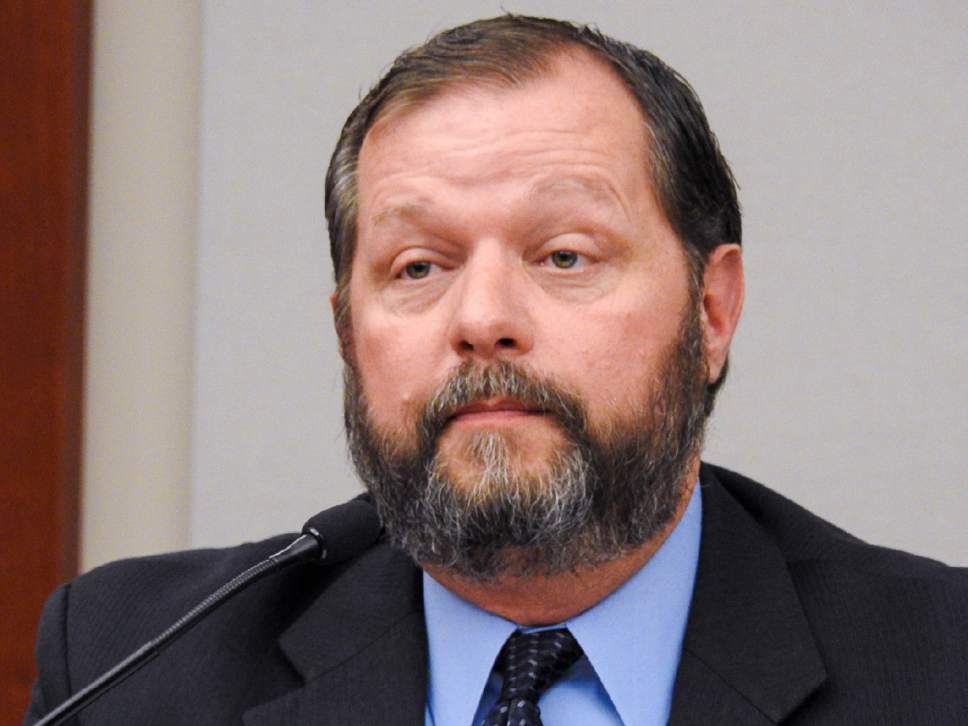This is an archived article that was published on sltrib.com in 2017, and information in the article may be outdated. It is provided only for personal research purposes and may not be reprinted.
John Swallow's defense team rested its case Tuesday with a handful of witnesses and a high degree of confidence.
"If this system works the way it should," Swallow attorney Scott C. Williams told a gaggle of reporters, "I'm entirely confident of an acquittal on all charges."
Jurors are expected to be handed the case Wednesday without hearing from Swallow, who did not take the stand in his own defense.
Williams said the state's evidence was "very, very weak" and failed to prove that Utah's former attorney general, who was elected in 2012 and resigned amid a cloud of suspicion a year later, is guilty of any crimes.
That's why, he said, the defense called so few witnesses.
"We only put on evidence of our own to clear up things that we think the state had intentionally misled the jury on," he said. "And put an expert on to demonstrate the truth of our narrative."
That includes the contention that the prosecution was, in part, politically motivated. It's a point defense lawyers tried to drive home through the testimony of their own investigator, Travis Peterson, who previously worked for the Salt Lake County district attorney's office.
Peterson was asked if he knew that District Attorney Sim Gill, a Democrat, was running for re-election in 2014 when charges were filed against Swallow, a Republican.
Prosecutors objected sharply.
"We think it goes to motive and bias as to why this case was filed," defense attorney Cara Tangaro countered before 3rd District Judge Elizabeth Hruby-Mills then shut down the line of questioning.
Williams later reprised the issue with reporters, saying he believes it is relevant when considering that the U.S. Justice Department, not a Utah prosecutor, normally decides whether an FBI investigation warrants charges.
The Justice Department declined to bring charges against Swallow in September 2013.
"We thought that the feds didn't and the state did should be considered in light of a political motive," he said. "Sim Gill ran that campaign on 'no one is above the law.' It was on his posters and he knew what he was doing when he filed the case against John Swallow."
In a text message, Gill denied that politics was a factor in his decision, noting that there were multiple investigations of Swallow, including by the GOP-controlled Utah House and the Republican-led lieutenant governor's office.
"My commitment was to the idea that if anyone violates the rules of our community, our office will hold you accountable," he said. "To suggest that I could control the independent actions of all those agencies is to give me considerably more power than I possess."
The initial charges were brought in a joint case by Gill and Davis County Attorney Troy Rawlings, a Republican, against Swallow and his immediate predecessor, Republican Mark Shurtleff. The prosecutions eventually were separated and Shurtleff's case dismissed.
Closing arguments in the Swallow trial are scheduled for Wednesday morning, after which the case goes to the jury. Twelve jurors — seven men and five women — have heard the testimony. Four are alternates, who won't participate in deliberations.
If convicted, Swallow faces up to 30 years in prison.
Prosecutors had charged 13 counts, but dropped three last week when they rested their case.
On Tuesday, an evidence-tampering charge also was dropped. The count was related to allegations that Swallow had the attorney general's office information technology staff wipe his computer in 2013.
Witnesses for the defense Tuesday included experts in estate planning, politics and a friend Swallow turned to for advice when deciding whether to act on his political ambitions.
Lee McCullough, an estate-planning attorney who set up trusts for Swallow and his wife, Suzanne, testified that he advised Swallow in March 2012 that he wasn't required to disclose information about a consulting company when he filed to run for attorney general in 2012.
Prosecutors contend Swallow deposited $23,500 into a P-Solutions bank account from the late Check City founder Richard Rawle.
Swallow, who has said the money was for consulting work on a Nevada cement plant, later returned the payment after he became concerned it was tied to St. George businessman Jeremy Johnson.
Johnson, who refused to testify in the trial and is serving a federal prison sentence, had paid Rawle for help soliciting then-Sen. Harry Reid, D-Nev., for help stalling a federal probe of his online marketing company. Johnson previously characterized the effort as a bribe attempt; Swallow has termed it lobbying.
Rawle repaid Swallow from a different source.
McCullough told the jury Swallow didn't need to include P-Solutions on the forms because he had removed himself as the company's owner and manager.
He said that designation was changed — and given instead to Swallow's wife — just before Swallow declared his candidacy.
Swallow is charged with bribery for changes made to his campaign-finance disclosure forms for a fundraiser hosted by Tim and Jennifer Bell, while the couple were tied up in a foreclosure lawsuit that also involved the state.
The fundraiser first was listed as a $15,000 in-kind donation in 2012. It later was amended to $1,000 at the request of the campaign in 2013. A third amendment in 2014 placed the value at $28,000.
Political expert Gary Marx, a defense witness, told the jury that those types of amendments to campaign finance reports are common and legal.
Marx— who is president of Atlanta-based Madison Strategies and worked on a number of presidential campaigns, including Mitt Romney's 2008 bid for the White House — said Utah campaign-finance laws were unclear about in-kind contributions in 2012 and didn't say if a fundraiser's host was required to declare the whole cost of an event.
The jury also heard from Frank Madsen, a former staffer for Sen. Orrin Hatch, R-Utah, who said he had counseled Swallow on the pitfalls of public service and the toll it takes on family.
Madsen said he told Swallow: "You might be happier remaining in private practice, but it seemed to me he felt he had something to offer."
Madsen said Swallow was still deliberating whether to purse public office in summer 2011. He said he did not know that Swallow had told others long before then that he was going to be Utah's next attorney general.


